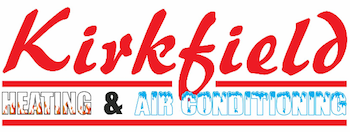
We spend lots of time indoors. In fact, the Environmental Protection Agency (EPA) has approximated being inside makes up 90% of our schedule. Having said that, the EPA also says your indoor air can be three to five times more polluted than outside your home.
That’s because our residences are securely sealed to increase energy efficiency. While this is good for your heating and cooling expenses, it’s not so good if you’re among the 40% of the population with respiratory allergies.
When outside ventilation is insufficient, pollutants including dust and volatile organic compounds (VOCs) might get stuck. As a result, these pollutants might aggravate your allergies.
You can boost your indoor air quality with clean air and regular housework and vacuuming. But if you’re still having problems with symptoms during the time you’re at home, an air purifier could be able to provide relief.
While it can’t remove pollutants that have landed on your furniture or flooring, it may help clean the air moving around your residence.
And air purification has also been scientifically confirmed to help lower some allergic symptoms, according to the American College of Allergy, Asthma and Immunology. It could also be helpful if you or someone in your household has lung trouble, such as emphysema or COPD.
There are two options, a portable air purifier or a whole-home air purifier. We’ll go over the distinctions so you can determine what’s right for your residence.
Whole-House Air Purifier vs. Portable Air Purifiers
A portable air purifier is for a single room. A whole-house air purifier accompanies your HVAC equipment to purify your entire house. Some types can clean on their own when your home comfort equipment isn’t on.
What’s the Best Air Purifier for Allergies?
Look for a model with a High Efficiency Particulate Air (HEPA) filter. HEPA filters are placed in hospitals and deliver the most comprehensive filtration you can buy, as they eliminate 99.97% of particles in the air.
HEPA filters are even more powerful when installed with an ultraviolet (UV) germicidal light. This dynamic mixture can destroy dust, dander, pollen and mold, all of which are general allergens. For the ultimate in air purification, consider equipment that also has a carbon-based filter to reduce household odors.
Avoid using an air purifier that creates ozone, which is the top component in smog. The EPA cautions ozone may irritate respiratory problems, even when released at minor settings.
The Allergy and Asthma Foundation of America has made a checklist of questions to ask when buying an air purifier.
- What can this purifier remove from the air? What doesn’t it extract?
- What’s its clean air delivery rate? (A bigger number means air will be purified faster.)
- How frequently does the filter or UV bulb need to be changed]? Can I finish that without help?
- How much do spare filters or bulbs cost?
How to Reduce Seasonal Allergy Symptoms
Want to receive the {top|most excellent|best] performance from your new air purification system? The Mayo Clinic suggests completing other measures to reduce your exposure to problems that can cause seasonal allergies.
- Stay inside and keep windows and doors shut when pollen counts are elevated.
- Have other family members mow the lawn or pull weeds, since this work can aggravate symptoms. If you must do these jobs yourself, you might want to consider wearing a pollen mask. You should also shower immediately and put on new clothes once you’re done.
- Avoid hanging laundry outside.
- Run your air conditioner while at home or while you’re on the road. Consider adding a high efficiency air filter in your house’s home comfort equipment.
- Balance your house’s humidity saturation with a whole-house dehumidifier.
- Hardwood, tile or linoleum are the best flooring kinds for decreasing indoor allergens. If your house has carpet, add a HEPA filter on your vacuum cleaner.
Let Our Pros Manage Your Indoor Air Quality Needs
Ready to take the next step with getting a whole-house air purifier? Give our professionals a call at 204-272-8128 or contact us online to schedule an appointment. We’ll help you locate the ideal system for your residence and budget.




